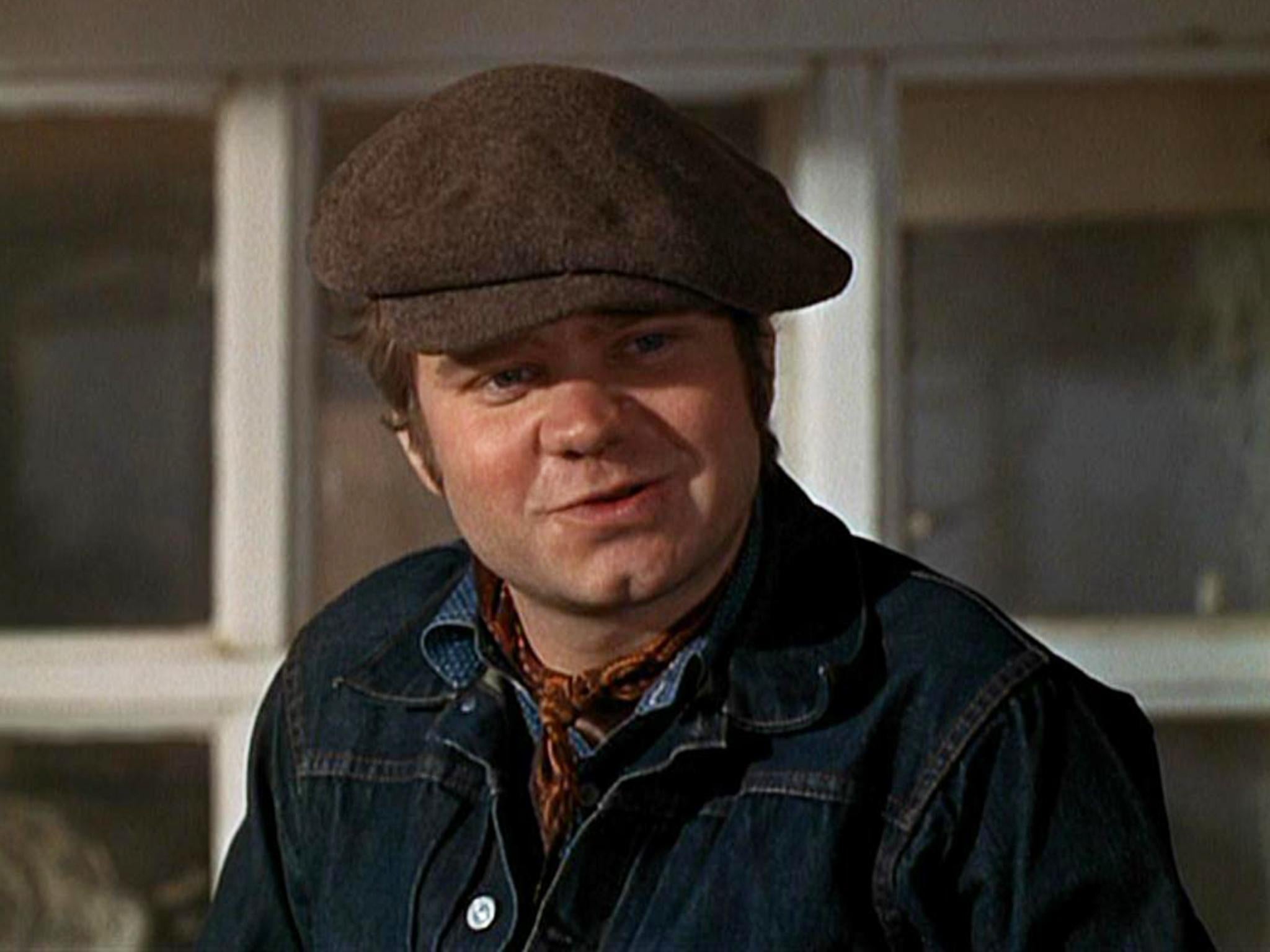Michael J Pollard: Hollywood character actor and scene-stealer in Bonnie and Clyde
A method actor who specialised in portraying imps and oddballs, Pollard had an impressive list of credits, working with the likes of Warren Beatty and Peter Fonda

Character actor Michael J Pollard earned an Oscar nomination for the landmark 1967 film Bonnie and Clyde, playing a getaway driver even though off-screen he never learned how to drive.
With a broad, cherubic face, dimpled chin, unruly hair and a charismatic presence described as “gnomelike”, Pollard, who has died of a heart attack aged 80, excelled at playing imps, halfwits and outright weirdos. He was a method-trained performer who revealed “the chaos inside” of his characters, a writer once observed, with a glance of inordinately expressive silence or the emission of rude bodily noises.
Pollard was the chronic-nosebleeding loser Hugo Peabody in the original Broadway production of the musical Bye Bye Birdie (1960), then had a brief apprenticeship with Disney. He appeared in the Disney musical Summer Magic (1963), opposite Hayley Mills, before parting ways. “I wasn’t really the Mickey Mouse image anyway,” he later said.
A successful journeyman, he made TV appearances on series including Star Trek, Gunsmoke and The Andy Griffith Show. He also won admiring reviews as the 14-year-old messenger who delivers tragic War Department telegrams in a 1959 TV adaptation of William Saroyan’s Second World War homefront story The Human Comedy.
His talent for improvisation earned him the admiration of Warren Beatty, who came to know Pollard when both worked on the sitcom The Many Loves of Dobie Gillis. Years later, Beatty used his clout as movie star and producer to hire Pollard as the gas-station-attendant-turned-accomplice CW Moss in Bonnie and Clyde, which critic Roger Ebert called “a milestone in the history of American movies”.
Marketed with an unforgettable tag line – “They’re young. They’re in love. And they kill people” – the movie was a revisionist tale of the Depression-era outlaws Clyde Barrow and Bonnie Parker, played by Beatty and Faye Dunaway. Its intermingling of bloodshed, almost farcical comedy and frank sexuality helped usher in a new era of violent imagery in mainstream cinema. Director Arthur Penn spoke of the film’s incongruous tone as a commentary on the folly of the Vietnam War.
In one memorable sequence, Pollard parks the getaway car during a bank heist and finds – at the worst possible moment – that he can’t manoeuvre out of the parking space. “There was this guy teaching me [to drive], but I couldn’t learn,” he said. “So here I was stuck in the parking place, and Penn said, ‘OK, do it that way.’”
Bonnie and Clyde was a resounding hit with younger audiences, who would also jolt the Hollywood establishment two years later by going en masse to another violent, taboo-busting film, Easy Rider.
Pollard said he was unmoved by those who found Bonnie and Clyde too brutal. “That’s dopey, man,” he said. “Everybody’s violent. They’re criticising themselves. Everybody will realise that in a year or so and start on something else. I don’t know. Hey, maybe they’ll start on humour in movies. Too much humour in movies. Children laughing too much.”
Bonnie and Clyde won two Oscars and was nominated for eight others, including Best Supporting Actor for Pollard. The film remained the pinnacle of Pollard’s screen career, even as he continued working in dozens of films over the next five decades, playing all manner of eccentrics and creeps.
The son of a bar manager, Michael John Pollack Jr was born in Passaic, New Jersey, in 1939, and grew up in Garfield and Clifton, New Jersey. He changed his last name to Pollard.
At 20 he was attending the Actors Studio workshop in New York when the movie star Marilyn Monroe, seeking to bolster her credibility as an actor, also joined his class. According to Charles Casillo’s biography of Monroe, Pollard was the only man in the room brave enough to ask her to do a scene with him. They recited passages from the novella Breakfast at Tiffany’s.
Pollard acting CV was vast, and included the Roger Corman-produced biker film The Wild Angels (1966), in which he said he nearly killed co-star Peter Fonda because he could never master driving a chopper. He also had a rare starring role as Billy the Kid in the low-budget Dirty Little Billy (1972).
He later appeared in Melvin and Howard (1980), Roxanne (1987), Scrooged (1988), the Beatty-directed Dick Tracy (1990) as Bug Bailey, Tumbleweeds (1999) and Rob Zombie’s House of 1,000 Corpses (2003).
His marriage to Beth Howland and Annie Tolstoy ended in divorce. He is survived by two children.
Michael J Pollard, actor, born 30 May 1939, died 20 November 2019
© Washington Post
Join our commenting forum
Join thought-provoking conversations, follow other Independent readers and see their replies
Comments
Bookmark popover
Removed from bookmarks